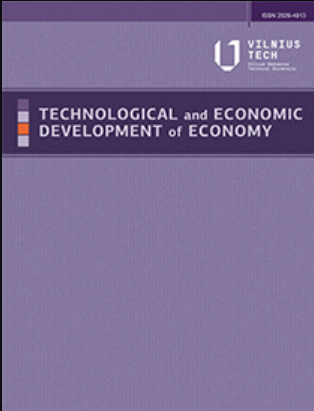HOW DO DIFFERENT FORMS OF DIGITALIZATION AFFECT INCOME INEQUALITY?
IF 4.8
2区 经济学
Q1 ECONOMICS
引用次数: 0
Abstract
This article examines how different forms of digitalization affect inequality in Europe. Using a cross-national dataset of economic development and digitalization across a range of regression specifications including country and time fixed effects, this article explores the heterogeneous relationships of disparate forms of digitalization – human capital, broadband connectivity, integration of digital technology into small and medium enterprises, and digital public services – with income inequality. Fixed country and time effects models show that only the digitalization of human capital and integration of digital technology by SMEs are associated with decreases in income inequality. Causal mediation analysis reveals that tertiary education, despite its oft-cited connection to digital technology uptake, has no causal effect on the pathways through which digitalization of labour and SME operations lower inequality, which are direct. The findings tentatively suggest that there exist informal sources of digital skills training apart from formal tertiary education and point to SMEs as a potentially impactful area for investing in digitalization as pathways for income redistribution.不同形式的数字化如何影响收入不平等?
本文探讨了不同形式的数字化如何影响欧洲的不平等现象。本文利用经济发展和数字化的跨国数据集,通过一系列回归规范(包括国家和时间固定效应),探讨了不同形式的数字化--人力资本、宽带连接、数字技术与中小企业的融合以及数字公共服务--与收入不平等之间的异质性关系。固定国家效应和时间效应模型显示,只有人力资本数字化和中小企业整合数字技术与收入不平等的减少相关。因果中介分析表明,尽管高等教育与数字技术的采用经常被提及,但它对劳动力数字化和中小企业运营降低不平等的途径没有直接的因果影响。研究结果初步表明,除了正规的高等教育之外,还存在非正规的数字技能培训来源,并指出中小企业是投资数字化的一个潜在影响领域,是收入再分配的途径。
本文章由计算机程序翻译,如有差异,请以英文原文为准。
求助全文
约1分钟内获得全文
求助全文
来源期刊
CiteScore
10.00
自引率
8.50%
发文量
66
审稿时长
15 weeks
期刊介绍:
Technological and Economic Development of Economy is a refereed journal that publishes original research and review articles and book reviews. The Journal is designed for publishing articles in the following fields of research:
systems for sustainable development,
policy on sustainable development,
legislation on sustainable development,
strategies, approaches and methods for sustainable development,
visions and scenarios for the future,
education for sustainable development,
institutional change and sustainable development,
health care and sustainable development,
alternative economic paradigms for sustainable development,
partnership in the field of sustainable development,
industry and sustainable development,
sustainable development challenges to business and management,
technological changes and sustainable development,
social aspects of sustainability,
economic dimensions of sustainability,
political dimensions of sustainability,
innovations,
life cycle design and assessment,
ethics and sustainability,
sustainable design and material selection,
assessment of environmental impact,
ecology and sustainability,
application case studies,
best practices,
decision making theory,
models of operations research,
theory and practice of operations research,
statistics,
optimization,
simulation.
All papers to be published in Technological and Economic Development of Economy are peer reviewed by two appointed experts. The Journal is published quarterly, in March, June, September and December.

 求助内容:
求助内容: 应助结果提醒方式:
应助结果提醒方式:


